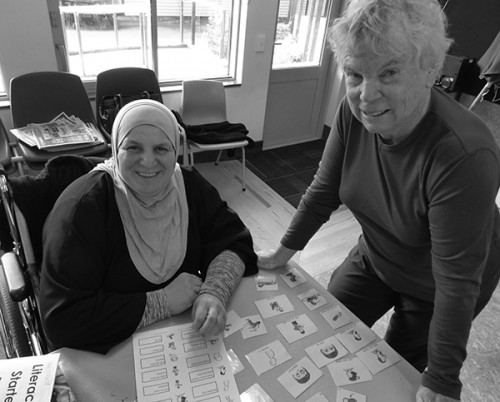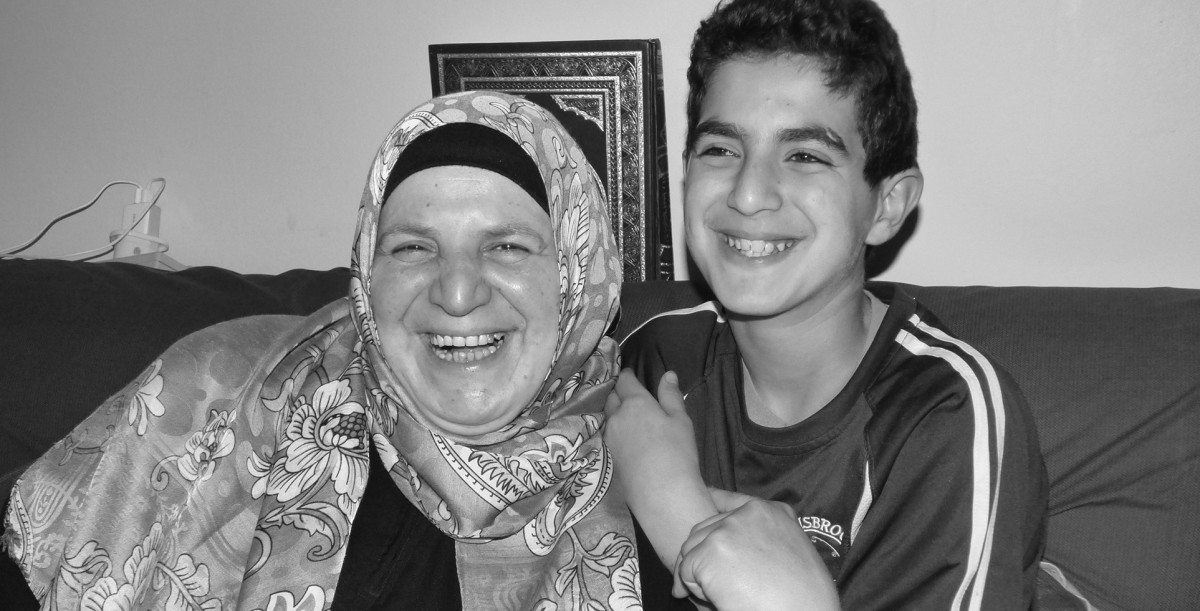Changing lives one word at a time
Changing lives one word at a time
Private training establishment English Language Partners isn’t just providing its learners with an education – it’s changing communities.
Private training establishment English Language Partners isn’t just providing its learners with an education – it’s changing communities.
The not-for-profit charitable organisation is one of the main community groups helping Syrian refugees settle in Dunedin. In 2016, Dunedin became New Zealand’s sixth resettlement city and is expected to absorb 30% of the country’s refugee quota.
With new groups of refugees arriving every eight weeks, English Language Partners is playing an important role in helping the new arrivals adjust to their new lives. Its teachers and volunteers work to make their learners feel as ‘’safe and comfortable’’ as possible in their English tuition classes.
“English is the golden key to successful settlement. We must be proactive, organic, flexible and well-prepared as more refugees make Dunedin their new home,’’ says Dunedin centre manager Paul Naidu.
He says the often traumatic, unimaginable experiences of many refugees means staff are engaged in teaching and supporting them as sensitively and patiently as possible.
For some classes, the support includes an on-site playgroup assistant who keeps young children occupied while their parents learn English.
While providing services and language programmes is not without its challenges, it is worth the effort to see the results, Paul says.
“Seeing learners with little or no English grow in confidence and blossom is absolutely wonderful.’’

Syrian refugee Wafaa Al Ashram and her English Language Partners' teacher.
From Damascus to “lovely Dunedin”
Former refugees from Syria, Wafaa Al Ashram and her 13-year-old son Ahmed arrived in Dunedin from Lebanon in April 2016. They are part of the first group of 49 Syrian refugees to settle in the city.
Wafaa left her hometown of Damascus in 2014, crossing the border into Lebanon with her son, Ahmed. She left behind a son in Syria. One other son had passed away.
“We suffered a lot and we had lots of bad stuff happen to us but when we arrived here we needed to learn and we needed to change what we had and live a normal life,’’ Wafaa says.
Growing up learning Arabic, Wafaa left school in Year 6 before she could learn English. She kept learning Arabic and her main hobby is reading. She says the chance to learn English with English Language Partners is like a “dream coming true”.
Since arriving in Dunedin, she has been getting used to New Zealand life. She is enjoying her lessons and appreciates all the help she and her classmates receive from their teachers.
She has progressed from knowing only some of the English alphabet, to being able to read and understand “very easy’’ English books.
She enjoys being in the classes because she feels the people at English Language Partners are supportive, and also finds the teaching style really helpful “to learn and get more information about everything English”.
Mainly wheelchair-bound, Wafaa describes Ahmed as a “big support” and says her motivation to learn comes from her desire to make a new life in her new country.
She hopes to find employment once her English has improved and she has developed some computer skills.
Learning centres throughout New Zealand
English Language Partners offers courses in a range of subjects, from beginners English to conversational English and English for work, as well as more specialised subjects like learning the road code. It also offers in-home tutoring for learners who are unable to access group lessons.
The organisation also actively supports and advocates for race relations and cultural heritage. It helps its migrant and refugee communities retain their own national identity, culture and language in a variety of ways including hosting events and open days at its community centres.
“We believe being able to communicate in everyday English and understand how things are done here is essential for good settlement outcomes. Success in this benefits everyone including communities and workplaces,” says English Language Partners CE Nicola Sutton.
This year, English Language Partners will receive over $8M in TEC funding. It is funded to deliver Adult and Community Education, the Migrant Levy, Student Achievement Component levels 1 and 2, and Intensive Literacy and Numeracy and Workplace Literacy programmes.
More information
You can read many inspiring stories about the work English Language Partners is doing on its website.
Front page photo caption: New refugee Wafaa shares a laugh with her son Ahmed.
Do you have a story you would like to share on our website?
If you have a story you would like to share, get in touch with your Investment Manager or send your story proposal to news@tec.govt.nz.
